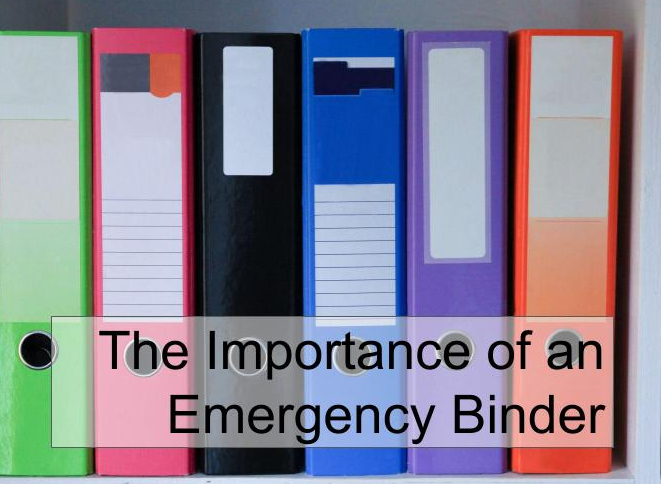Life insurance is one of the only purchases you make where you dread the day you have to use it. It is kind of like buying a generator. It is a pretty big investment. You don’t ever really want to have to use it, but it can be useful if you have to. With life insurance, there is an element of peace of mind that comes with knowing that your loved ones will be financially secure in the event of your death. But do you really need life insurance? [If you don’t feel prepared overall for death, check out my previous article Create A Legacy Binder – Don’t Leave A Mess When You Die. to get more prepared].
Life insurance is NOT an investment!
Life insurance has a very meaningful purpose as part of your personal financial plan, but it is not an investment. At its core, life insurance should be a replacement of income (or the value a person provides) that is lost when the person dies. You may encounter investment “advisors” who strongly push whole life insurance, touting that it is life insurance, but also an investment. They tout the cash out value of the plan. The main purpose of whole life insurance in my opinion is to line the pockets of the people who sell it. The commissions for the agents who sell it are high, the premiums for you are significantly higher than for a term life insurance plan. Life insurance is not an investment. It is a way to replace income or cover added expenses that come about in the event of death.
Stick to term life insurance
Term life insurance provides coverage for a specific duration that you choose. This is typically between 10-30 years. Policies are offered for sale individually. Or, if you are employed, you can sign up for a group policy from your employer if offered. Some employers offer a base amount of life insurance as a benefit, but then offer perhaps an opportunity to buy additional coverage. By opting for term life insurance vs. whole life insurance, you are paying to cover your life for the purchased period of time, and you get a payout value at a much lower premium vs. whole life insurance.
People who may want to consider life insurance
- Single parents. When you are the single income earner for the family, and children depend on you, having life insurance provides the cushion that your children will need in order to cover their living expenses and other future needs, such as college.
- A parent who doesn’t work outside of the home. Most times in single-earner situations with children, one spouse is managing the household and the kids full time. Do NOT discount the value of those services. If your non-income earning spouse dies, there are sudden costs that weren’t previously there for child care, cleaning services perhaps and so forth. There is definite value in that household work. If you do not have enough income to pay those types of expenses in addition to your ongoing expenses, you may want to consider adding a buffer with life insurance.
- Families with a single earner. Conversely to the point above, if the income-earning spouse, on the other hand dies, and that family does not have enough saved to cover expenses, they will struggle. By having the right amount of life insurance, it can fill those gaps for a time, and life can continue more comfortably for the entire family.
- Adults with private student loans. Since many student loans are not forgivable debt, if a parent has cosigned for their adult child on a student loan, that parent may be accountable for the debt upon the death of the adult child. In this case, if the parent does not have enough funds to pay this debt, they may want to consider a policy large enough to cover the debt.
Why you might not need life insurance
While some might have you believe that everyone should carry life insurance, there are definite scenarios where one should question whether it is really necessary. I, for instance, only have the policy that is provided to me by my employer. Nothing more. Why, you might ask? As mentioned earlier, life insurance is largely a mechanism to replace lost income in the event of a death. In our case, I am the primary earner in the family. If you’ve read my financial independence story, you might recall that our living expenses are low, our savings rate is high, and we have worked hard to be financially independent, meaning we can cover our cost of living without the need for an income. [Find out what your FI number is with the 4% rule by reading What Is the 4% Rule, and How To Apply It To Figure Out How Much You’re Going To Need To Retire]. Because we have things covered financially, if I were to die unexpectedly, my wife would be secure, especially with the extra cushion of the life insurance from my employer as well as my social security.
Here are some scenarios where you might NOT need life insurance:
- You are single with no children. Again, life insurance is a tool to cover unexpected expenses or to replace income upon your death. If you are not leaving behind any children or dependents, and you do not have debt that won’t be forgiven upon your death (e.g. student loans), you might not need life insurance.
- You are single parent with adult kids who are not financially strapped. If you have young children, that is one thing. But, if you are not leaving behind heavy debt, and you have adult children who are comfortable financially, you might not need life insurance, because they won’t need it.
- You are retired or getting ready to be. Life insurance gets extraordinarily more expensive as you get older and health begins to decline. Beginning to buy life insurance at that stage in life can be costly and unnecessary. By the time you reach retirement, you should strive to be debt free with a decent amount of retirement savings. If your intent is to leave money behind for heirs, there are more effective ways of doing so than life insurance, such as listing beneficiaries on your retirement and other accounts.
- You are in a great place financially. If you have a good amount of savings in investments, retirement accounts, real estate and do not have large amounts of debt or payments to make, your expenses might already be covered. In that event, life insurance could be an unnecessary expense to take on.
How much life insurance do I need?
The amount of life insurance you need is largely dependent on your personal financial situation. Your current savings and current and future expenses play a big role in how much life insurance you might need. Some experts claim that people simply need 10 times their salary in life insurance. I personally believe that rule of thumb is flawed, because it goes based off of salary/pay versus expenses. It assumes you spend 100% of your salary on expenses each month. It also assumes that everyone is in the same stage of life. That, however, is not true.
To get to the most optimal amount, you need to consider your current expenses and your future expenses. You should also consider any additional expenses that might not have been there if the death hadn’t occurred.
- How much does your life cost currently each year? This is mainly what you need to cover.
- Can you cover those expenses with one income (if you’re currently a dual-income family)? Or do you need to supplement that income in the event of a death?
- What added expenses will you have? Do you intend to pay college tuition for your kids? Do you also want your house paid off in the event of a death?
- Do you need to replace a spouse’s child care by hiring someone so that you can work?
- Are there any other added expenses, such as funeral costs that weren’t considered?
This is an exercise of adding all of your annual expenses and multiplying by the number of years you need. Let’s say your yearly expenses are $70k, and your spouse who made $50k dies (you make $40k). With life insurance, you’re really trying to replace that $30k/year to cover those expenses ($70k – $40k = $30k). And if you need that for the next 10 years, until your kids are independent, the total insurance needed is $300k ($30k x 10 years).
If you want something more simple, Bankrate offers a life insurance calculator.
So, do you need life insurance?
The short answer is, it depends. As outlined earlier, there are various scenarios that might drive the need for a life insurance policy. The most important thing to remember is the purpose of life insurance. It is not about giving your heirs Oprah money. It is about covering expenses for a certain period of time. Make sure you’re right-sizing your life insurance policy. It will be good for your wealth.


